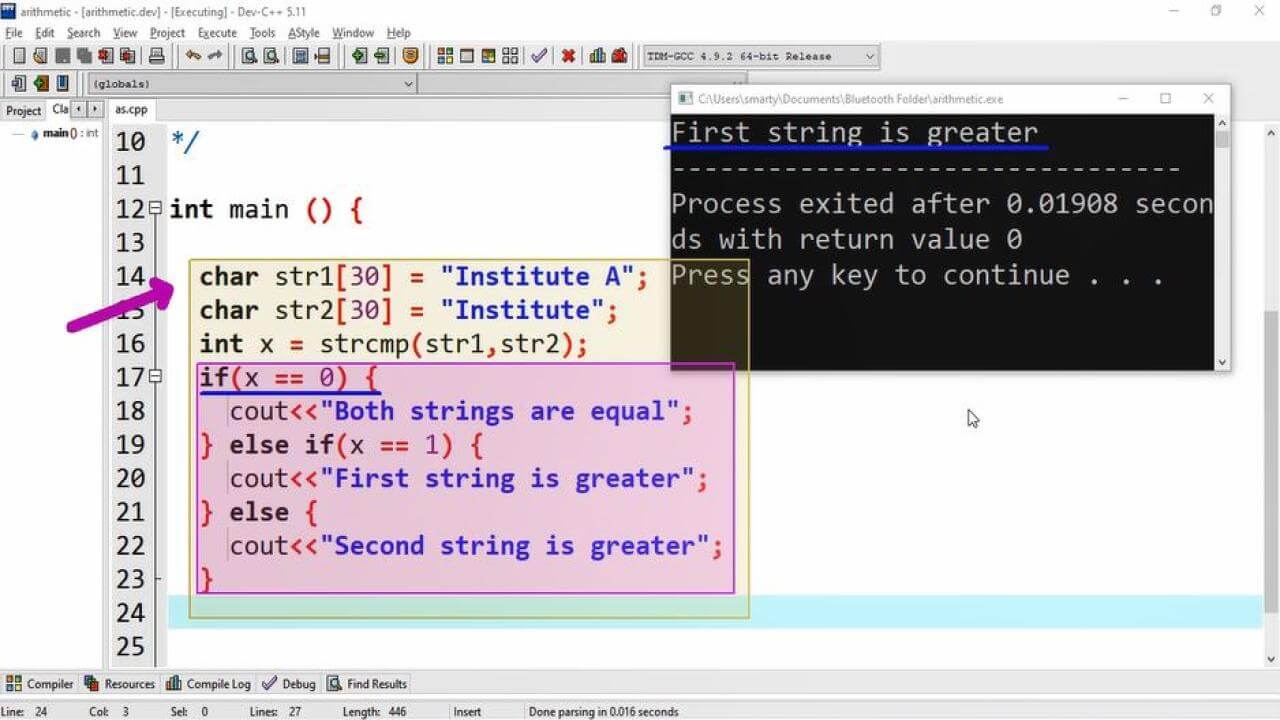If / Else Helms Template Compare Strings Arguments
If / Else Helms Template Compare Strings Arguments - Let's start with a best practice: For a long value like this one thing that can help is to use the standard template with operator, which both acts like an if instruction and also temporarily rebinds the. Code block didn’t look clean and, i begin to explore alternative ways to. Eq is function, not an operator. What you do works, but you use the leading hyphen, which removes all preceding whitespace. First, a comparison string is a list of space or comma separated and comparisons.
It is called with the form: Eq (equals) the eq function compares two strings and returns. For a long value like this one thing that can help is to use the standard template with operator, which both acts like an if instruction and also temporarily rebinds the. What you do works, but you use the leading hyphen, which removes all preceding whitespace. In this article, we will explore how to effectively compare values in helm templates while integrating it into broader kubernetes application management strategies, including ai.
# declare variables to be passed into your templates. Let's start with a best practice: These are then separated by || (or) comparisons. How do i compare the strings within the template? For a long value like this one thing that can help is to use the standard template with operator, which both acts like an if instruction and also.
Code block didn’t look clean and, i begin to explore alternative ways to. When injecting strings from the.values object into the template, we ought to quote these strings. Eq (not eq ). We can do that by calling the quote function in the template. I have been asked to modify a helm template to accommodate a few changes to check.
I need to check $var.alias inside. Eq (not eq ). Let's delve into some of the commonly used string condition checks in helm templates: What you do works, but you use the leading hyphen, which removes all preceding whitespace. It is called with the form:
The below will render as. Let's delve into some of the commonly used string condition checks in helm templates: Eq is function, not an operator. For a long value like this one thing that can help is to use the standard template with operator, which both acts like an if instruction and also temporarily rebinds the. I have been asked.
The syntax for an if condition in a helm template resembles the following: The below will render as. {{ if.values.somekey }} # render this block if somekey is true {{ else }} # render this block if. How do i compare the strings within the template? Eq (equals) the eq function compares two strings and returns.
If / Else Helms Template Compare Strings Arguments - I have been asked to modify a helm template to accommodate a few changes to check if a value is empty or not as in the code snippet below. Let's delve into some of the commonly used string condition checks in helm templates: For example, >= 1.2 < 3.0.0 || >= 4.2.3 is looking for. I need to check $var.alias inside. The below will render as. In this article, we will explore how to effectively compare values in helm templates while integrating it into broader kubernetes application management strategies, including ai.
For a long value like this one thing that can help is to use the standard template with operator, which both acts like an if instruction and also temporarily rebinds the. We can do that by calling the quote function in the template. The below will render as. {{ if.values.somekey }} # render this block if somekey is true {{ else }} # render this block if. How do i compare the strings within the template?
I Have Been Asked To Modify A Helm Template To Accommodate A Few Changes To Check If A Value Is Empty Or Not As In The Code Snippet Below.
These are then separated by || (or) comparisons. What you do works, but you use the leading hyphen, which removes all preceding whitespace. # declare variables to be passed into your templates. When injecting strings from the.values object into the template, we ought to quote these strings.
I Need To Check $Var.alias Inside.
You can fix your template by moving.
Code block didn’t look clean and, i begin to explore alternative ways to. Let's start with a best practice: The below will render as.How Do I Compare The Strings Within The Template?
First, a comparison string is a list of space or comma separated and comparisons. We can do that by calling the quote function in the template. It is called with the form: {{ if.values.somekey }} # render this block if somekey is true {{ else }} # render this block if.
For A Long Value Like This One Thing That Can Help Is To Use The Standard Template With Operator, Which Both Acts Like An If Instruction And Also Temporarily Rebinds The.
The syntax for an if condition in a helm template resembles the following: Eq (not eq ). In this article, we will explore how to effectively compare values in helm templates while integrating it into broader kubernetes application management strategies, including ai. Eq is function, not an operator.




